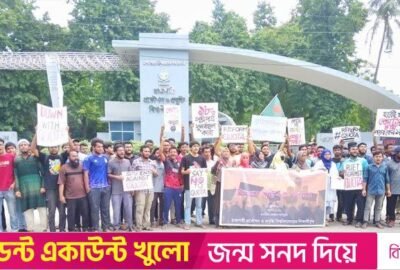In a dramatic reversal of election predictions, the ruling Bharatiya Janata Party (BJP) has struggled to maintain its absolute majority in the recent parliamentary elections, with the results declared on June 4 and extending into the following morning hours. This electoral shift has reshaped the political landscape of India, marking a significant decline in the BJP’s dominance and highlighting the importance of strategic participation in democratic processes – a lesson particularly relevant for Bangladesh Nationalist Party (BNP).
The counting of votes revealed a significant swing in voter sentiment. The BJP fell short of the 272 majority mark, achieving only 240 seats—a notable drop from its previous 303 seats. This necessitated reliance on 35 regional allies within the National Democratic Alliance (NDA) to secure a total of 290 seats in the 543-member Lok Sabha, the lower house of the Indian Parliament. A simple majority requires 272 seats, underscoring the BJP’s diminished standalone strength.
In contrast, the opposition Indian National Developmental Inclusive Alliance (INDIA) Bloc, led by the Congress Party, saw substantial gains, capturing 230 seats compared to their previous 91 seats. The Congress Party itself won 99 seats, up from 52 in 2019. Allies such as the Samajwadi Party (SP) and the All India Trinamool Congress also made significant inroads, with the SP leading in Uttar Pradesh with 37 seats and the Trinamool Congress winning 29. seats in West Bengal.
Political Pandits attribute this shift to the consolidation of anti-BJP votes and the revitalization of coalitions among Dalits, other backward castes, and religious minorities. The BJP’s focus on Hindu nationalism, exemplified by the Ram Mandir issue, failed to resonate with voters who prioritized pressing economic concerns over religious symbolism. Losses in key areas like Ayodhya highlighted this disconnect.
The BJP’s reduced majority means Prime Minister Narendra Modi may need to rely heavily on coalition partners, signaling potential concessions on various policy fronts. This shift from the BJP’s previous governance style suggests a more complex and negotiated future for Indian politics.
This scenario offers a stark lesson for the BNP in Bangladesh. By boycotting elections, the BNP missed opportunities to influence policy and build alliances.
The BJP’s ambitious slogan ‘Abki Baar 400 Paar’ (Cross the 400 mark this time) quickly lost traction as election results came in. Modi’s promises of accelerated economic growth and making India the third-largest economy failed to captivate voters as much as the 2019 campaign’s focus on national security. Opposition parties effectively highlighted economic challenges, unemployment, and rural distress, resonating with the electorate.
A key factor in the BJP’s weaker performance was the unprecedented unity among opposition parties in the INDIA Bloc. This unity neutralized the BJP’s advantage of a fragmented opposition vote.
The results also put the spotlight on Modi’s key allies, such as Janata Dal (United) chief Nitish Kumar and Telugu Desam Party chief Chandrababu Naidu, who could play crucial roles in the post-election coalition landscape. Both have histories of switching allegiances based on political climates, raising questions about their potential influence as kingmakers.
The 2024 Lok Sabha elections mark the end of unchallenged BJP dominance and signal a return to coalition politics, reminiscent of India’s political landscape before Modi’s decisive mandate in 2014. This new reality requires Modi’s government to adapt to a more collaborative and less centralized approach to governance. , posing new challenges and opportunities.
For the BNP, the Indian elections serve as a case study in the importance of participating in democratic processes, regardless of current political standing. Boycotting elections can lead to political marginalization and missed opportunities for influence and reform. Engaging in elections, building coalitions, and addressing voter concerns are essential for any political party aiming to effect change and maintain relevance.
In light of the political lessons from India’s recent elections, the BNP could consider bringing Zaima Rahman to the forefront, especially given that Tarique Rahman is disqualified from running due to series of corruption allegations centering him as well as his conviction on allegations of his direct involvement. in terrorist act and cross-border terrorism. By positioning Zaima as a new leader, BNP could galvanize support, much like the successful coalition-building seen with the INDIA Bloc in India. Zaima’s leadership could help consolidate anti-establishment votes, unify various opposition factions, and address key voter concerns, potentially leading to significant electoral gains akin to those achieved by the Congress-led alliance in India’s last election.
The post Lessons BNP can learn from India’s Lok Sabha elections appeared first on BLiTZ.






